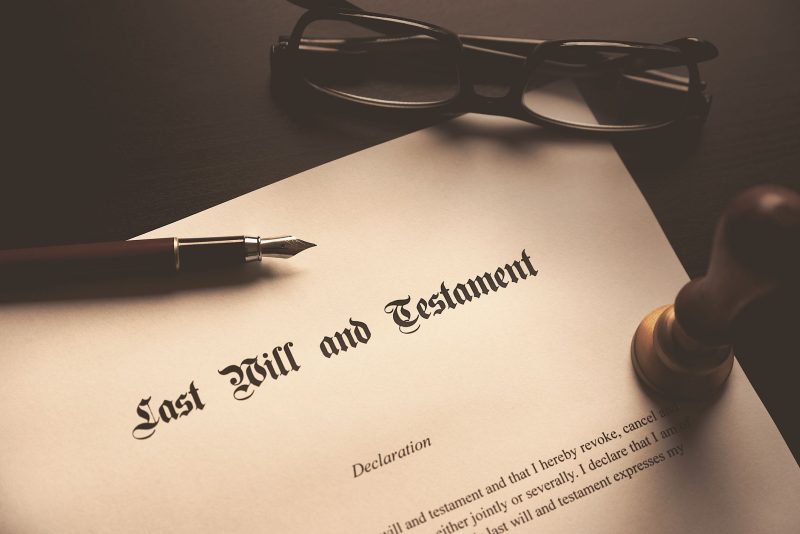Being the head of the family is a matter of great joy and pride, but it also comes with many responsibilities. All one needs for their family is to be safe and financially secure when they are not around. It requires adequate planning beforehand, and this is where wills and trusts come into the picture. However, there is quite a difference between both kinds of estate planning, which one needs to know before making any decisions. An easy and hassle-free way to do this is to approach the best trust funds in the UK that offer multiple services like these, saving time and energy for those interested.
Now let us dive into the differences!
What is a will?

In its simplest terms, a will consists of asset details and the manner of their distribution to loved ones after they pass away. This distribution is taken care of by an executor who is given responsibility by the person creating the will, i.e., the testator. The will execution post demise of the person is overseen by the court in the case of probate, i.e., if estate planning is done in an unorganized manner. The testator can also list down the usage requirements of their estate.
Benefits of a will
- The distribution of assets is as per the last wishes of the owner.
- No post-demise complications amongst heirs
- Usually, a convenient and short legal process eases the pain of family members.
- One can pick the guardian of their choice.
- Multiple revisions can be undertaken.
Drawbacks of a will
- It becomes a public document after the demise of the person concerned.
- It is of no use when a person is living.
- Probate is a long and expensive process.
- It does not provide for the provision of disability benefits.
- If legal heirs are not specified, then the court gets to decide.
- The will incorporates all the assets owned by the person.
What is trust?

A trust is a legal arrangement almost similar to a will, but there are some key differences. A person can create a trust and appoint a trustee responsible for taking care of the assets according to the procedure specified in the deed. The beneficiaries will eventually end up with the proceeds of the assets listed in the trust deed.
There are two main types of trusts:
- Revocable
A revocable trust is created for the grantor (asset owner) to retain control by the time they are alive. The conditions of transfer and other management details can be altered based on the changing circumstances and equations with people over the grantor’s lifetime. They can make themselves co-trustees, and this trust becomes irrevocable upon the grantor’s demise. This type of trust is cheaper compared to others, and asset distribution happens more quickly. However, the asset is not protected from creditors as ownership stays with the grantor.
- Irrevocable
An irrevocable trust is created when a grantor intends to shun the tax responsibility and live life in peace. It becomes permanent immediately after its creation, making any alterations by the grantor impossible, regardless of the changed circumstances.
Apart from the above two, there are inter Vivos trusts or living trusts, and testamentary trusts, where the former is during the grantor’s lifetime and the latter is created after death. An irrevocable trust offers increased privacy and is secured from creditors as the grantor does not have ownership over assets anymore.
The benefits of a trust
- Reduce tax liabilities.
- It can bypass probate, saving time and money and making resolution by heirs easier and quicker.
- The continuing transfer of wealth across generations
- Looking after loved ones
- It protects assets from creditors and
- Keep the selected assets out of divorce settlements.
- It offers increased asset protection and improved privacy.
- It incorporates provisions if you get mentally or physically weak to make decisions.
- It comes into effect immediately after creation.
Drawbacks of trust
- Might lose control over assets.
- An inefficient trust fund company might not be responsive enough, making the process cumbersome.
- The cost of setting up a trust with financial institutions is high.
- Tedious record maintenance and a lot of paperwork
When do the trust and the will come into effect?

A will comes into effect post the demise of its creator. It has no relevance when the owner is alive or when they have lost the cognitive or physical capacity to make effective decisions. The probate process is initiated immediately after the demise and is a lengthy process.
Trust impacts the assets of the grantor when they are alive and post-death. According to their whims and fancies, a person can decide on asset utilization and not leave anything to chance. A significant advantage is that it can include provisions for an unforeseen disability hampering decision-making ability, securing the grantor from a helpless and indecent life with no protection.
How do you decide on your pick?
Both wills and trusts have their own sets of pros and cons. The final decision of a person is arrived at by listing the objectives they intend to achieve in the end. The following table lists down the hits and misses of both to ease your decision-making process:
| FEATURES | TRUST | WILL |
| Probate | Does not undergo probate | Eligible for a probate |
| Public disclosure | It stays private | It becomes a public record |
| Assets covered | Specified in the deed | All assets covered |
| Revocation | Depends on the type chosen | Can be revoked any time |
| Creditor protection | Offers protection | Does not offer protection |
| Management required | Complicated and requires management | A simple process |
Final thoughts
It is the responsibility of an asset owner to make timely decisions and plan for the distribution of their assets so that people who depend on them do not have to worry about their survival and get engaged in tedious legal formalities. With the above-presented information, one needs to formulate the objectives of their asset planning and then decide if trust or will is a right fit for them. Multiple fund managers can guide you to make a better-informed decision for you to live and die in peace.


